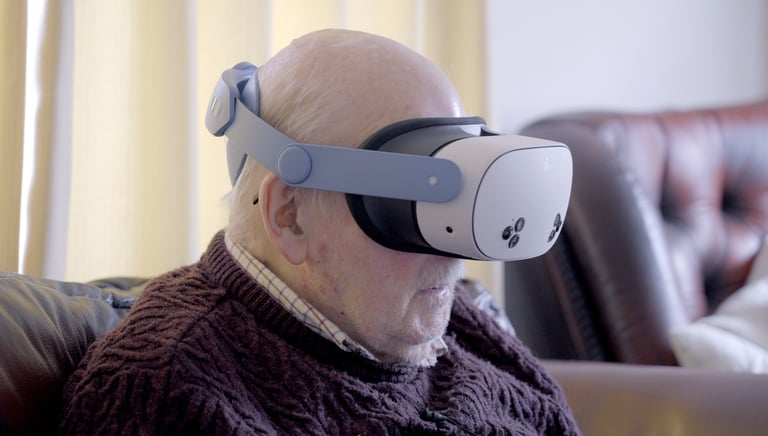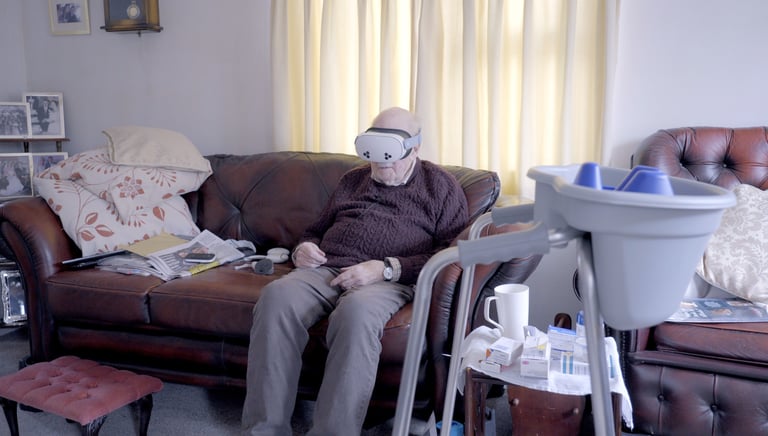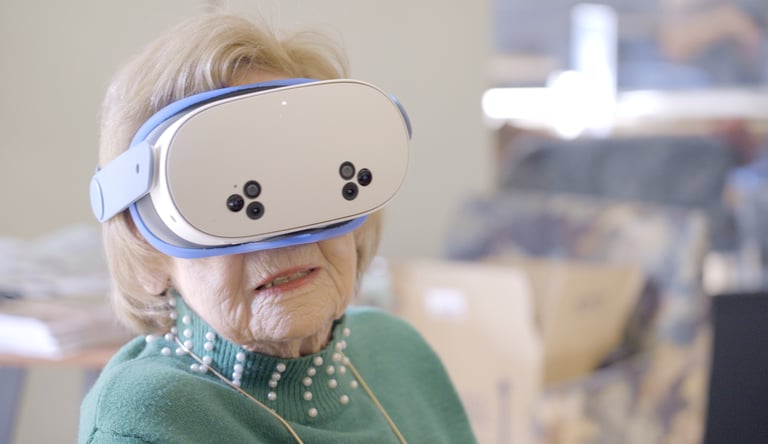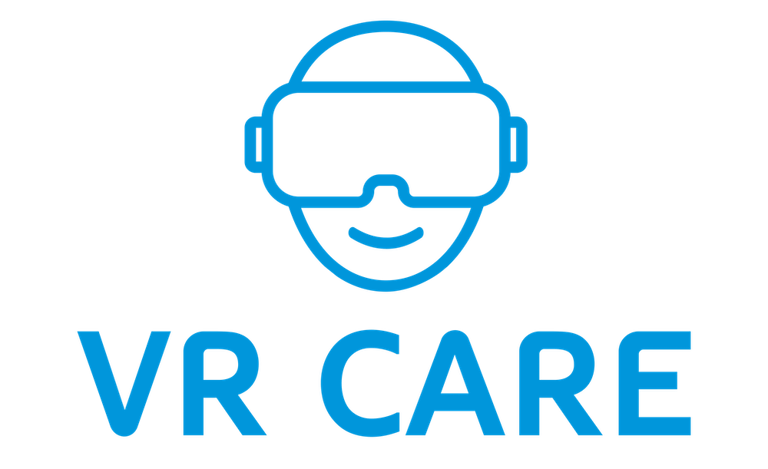VR DOMICILIARY CARE
Virtual Reality as an enriching activity in the domiciliary care setting, for people who receive care at home and aren't able to visit and explore places of interest. VR CARE has proven to be a great activity for people to virtually explore places, provide cognitive stimulation and also have a therapeutic experience.
VR at Home


Carers are able to travel with our VR CARE headset in a protective case inside a drawstring bag.




1-2-1 VR Activity
Allow VR CARE content to help the people you support to engage in cognitive stimulation and share their stories.
VR CARE content library has many options that help people to relax. We also have content with a hypnosis expert.
Stress and Pain Management
Benefits of Virtual Reality in Domiciliary Care
1: Cognitive Stimulation and Engagement
VR can provide immersive experiences (e.g., virtual travel, interactive games, memory-based activities) that help stimulate the brain, reduce boredom, and support mental well-being, especially for people with dementia or cognitive decline.
2: Social Connection and Reduced Isolation
Many domiciliary care recipients struggle with loneliness. VR can allow them to virtually connect with family, friends, or peer groups, creating shared experiences and improving emotional health.
3: Rehabilitation and Physical Therapy
VR applications can support gentle exercise routines, balance training, and motor skill rehabilitation in a safe and enjoyable way, helping individuals maintain independence for longer.
4: Stress and Pain Management
Immersive VR environments (like nature scenes or guided meditations) can help reduce stress, anxiety, and even manage chronic pain by providing calming distractions and relaxation techniques.
5: Caregiver Support and Training
VR can also be used to train domiciliary care workers in empathy-building scenarios (e.g., simulating living with dementia) or in practicing complex care procedures, improving the quality of care delivered at home.

